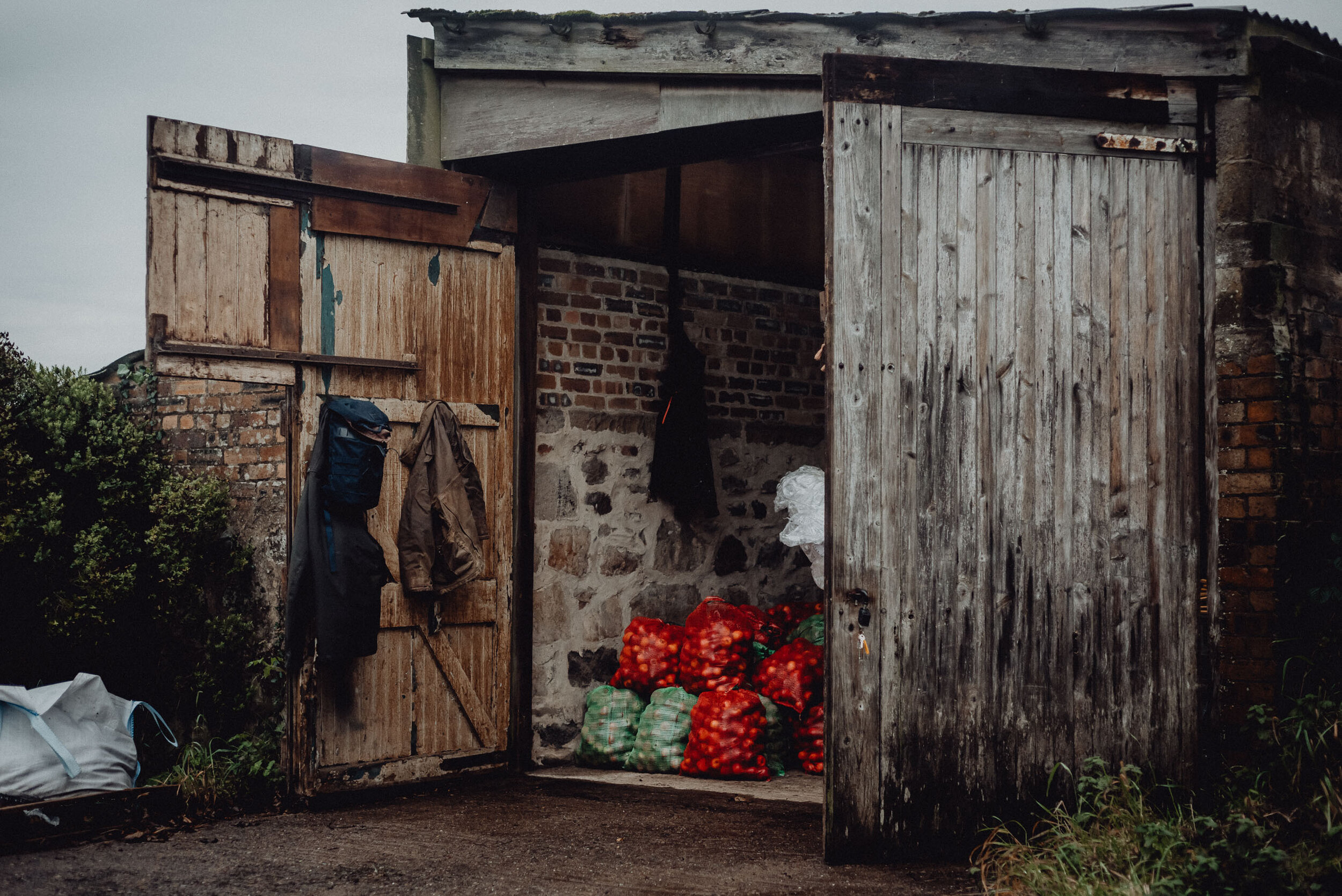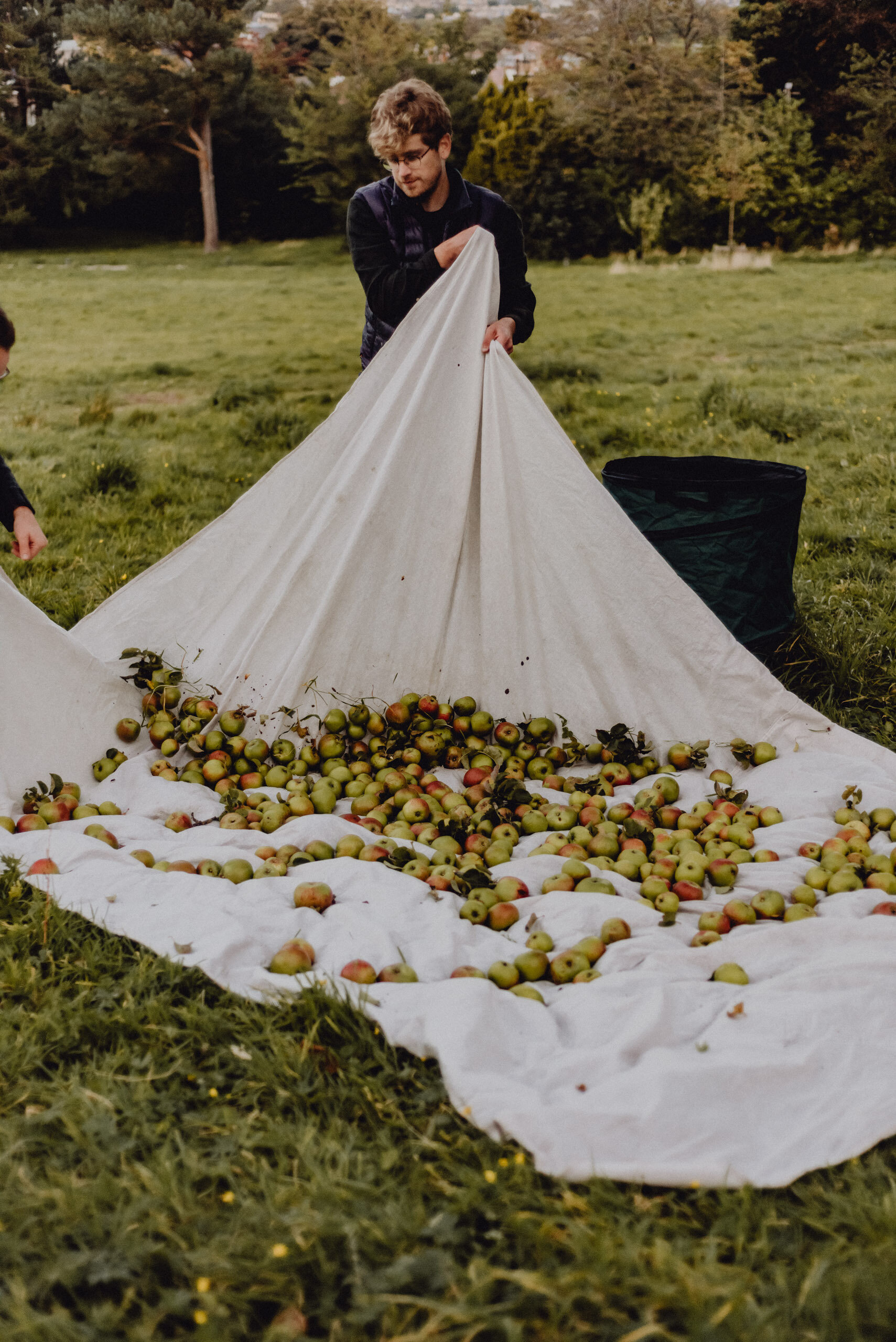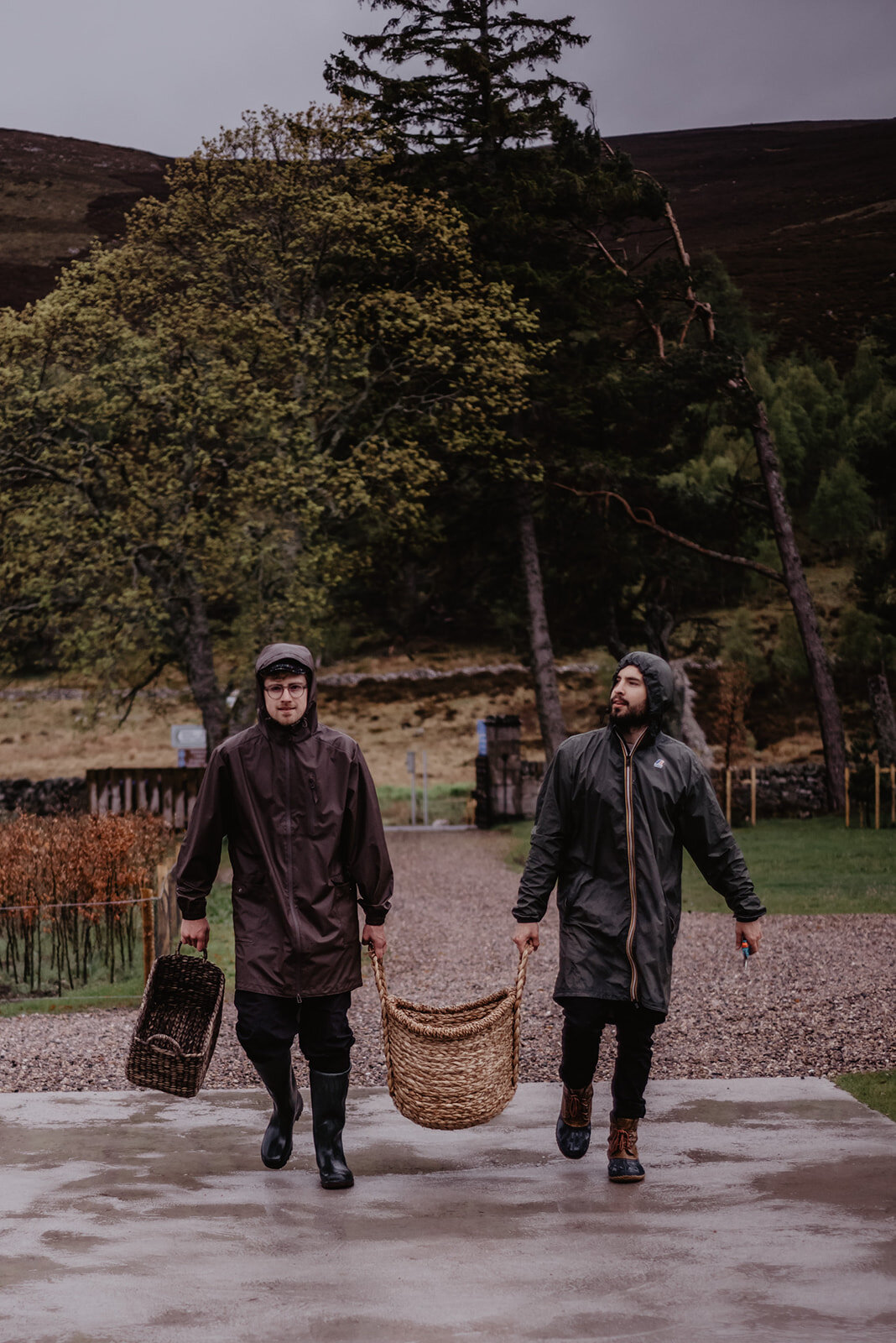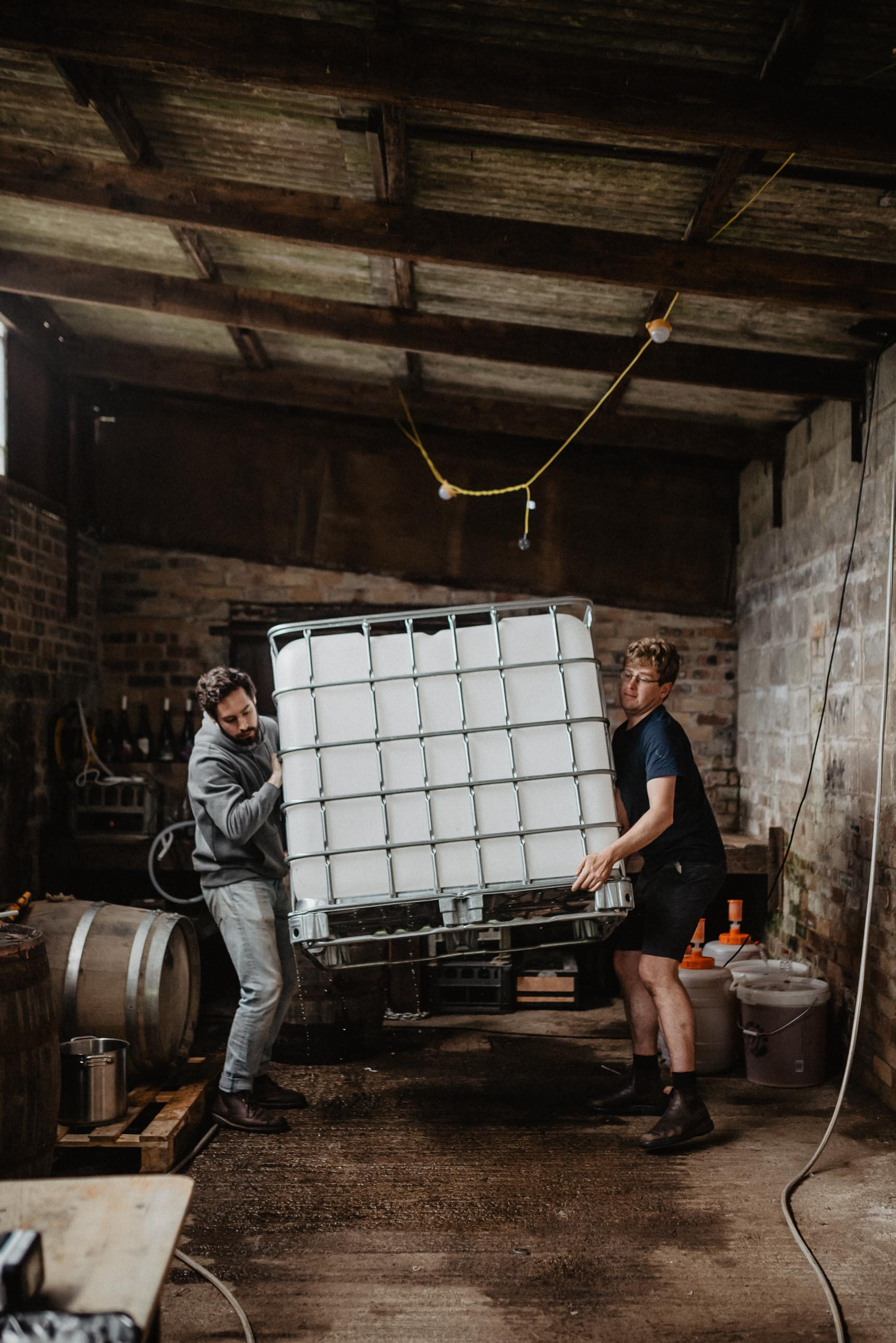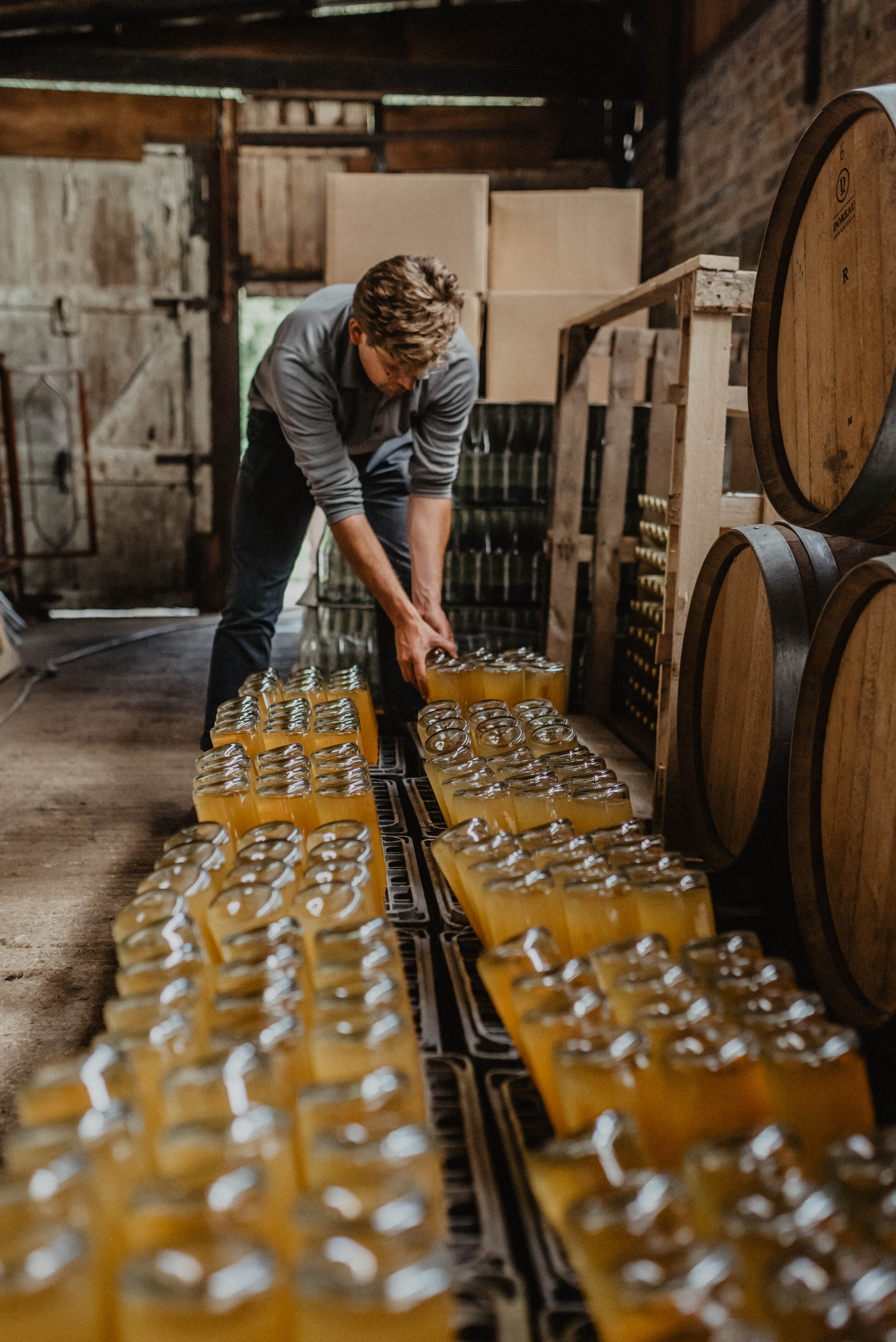Cider Making: The-Make-It-Up-As-You-Go Method
Fortune may favour the brave, but she still has a soft spot for the bored and blissfully ignorant.
September 2020, friend Jack and I escaped our shrinking Edinburgh flats to pick apples in the pristine back garden of retiree couple, Janet and Frank. The plan was to kick the lockdown blues by making a small batch of home-fermented cider.
It was easy work, literal low-hanging fruit. Eight squat trees queued along the fence like a leafy, open-air buffet. A funky Spotify algorithm buzzed from our iphone in a cup, though it might as well have been a Vivaldi concerto—the mood was that kind of poetic. A half hour in and we had already taken a break to accept Janet’s offering of tea and Kit-Kats, consumed while petting the moss garden.
In a single afternoon we’d filled the poor hatchback with the most apples I’d ever seen in one place, more than enough to make a modest batch of cider. But apple fever had taken hold. We became enamoured with the idea that all across Scotland there was an abundance of unwanted fruit just waiting to be put to good use, any use other than turning to rot.
After posting messages on community Facebook groups, we made a tour of Edinburgh’s back gardens, collecting the unwanted apples of friends and neighbours. We found ignored trees in parks and a hospital grove that had been dropping delicious apples year after year. Then we moved on to local estates, walled gardens, cathedrals, and castles, rolling a bounty of windfall fruit into our increasingly ragged bedsheets. Word got around and apples began showing up at our door in wheelie bins and Ikea bags.
By autumn’s end we had nearly 3 tons piled up in an old tractor shed. That’s where we’ve spent our weekends since. Whether by greed, frugality or heroism, we’d accidentally become real-life cider makers.
The insight here is not that cider making is easy. We named our little company Dour for two reasons, to pay homage to the place (Aberdour, Fife) where our juice matured into cider and because the much loved Scottish descriptor for anything grim and gloomy felt especially fitting.
Turns out that our first experience picking apples was a tad misleading and most days don’t involve Kit Kats or garden gnomes. More common were the orchards engulfed in briars, barrels prone to rolling over toes, apple asteroids, spitting pumps, and farty ferments. The mud. The wind. The rain.
Yet despite the hard work, our make-it-up-as-we-go approach to cider making ought to say something about the surprising accessibility of the craft as well as the intermingled gloominess and delight of a Scottish harvest.
To become a cider maker:
1) You don’t need to have your own orchard. There are more than enough apples to go around. A few trees in a private garden can easily produce more apples than a single household can sanely manage to eat (and you can only give away so many bags of frozen applesauce before your neighbours stop answering the door). At the national level, an estimated 4.4 million whole apples are thrown away every day by UK households, an already massive statistic that doesn’t include agricultural waste or the many forgotten and untended orchards scattered across the country. The PTES Map of traditional orchards is a great tool for finding trees in your local area. (Wherever possible, remember to ask permission!)
2) You don’t need to live in the countryside. Cider usually brings to mind a rural ideal, the ruddy farmer in his dungarees, plopping ruby apples into a wicker basket. But our somersault into cider making began in the city. Most of our friends and neighbours live in the city. We live in the city. The same can be said of half of our apples. As we look to scale up, we also have the option of partnering with larger orchards countrywide, many of which are all too happy to deliver apples and fresh-pressed juice at affordable rates.
Simply put, if you want apples, you can get apples regardless of how many Starbucks you have in walking distance.
3) You don’t need professional training, certification, or a degree in zymology. To quote the neanderthal who gave the world’s first lecture on cider making, “Pick apple. Clean apple. Smash apple. Hide apple. Drink apple. Share apple.” Apart from better equipment and an internet full of how-to’s, not much has really changed. That said, while any two city slickers like us can make cider, there seems to be no end to what we can learn and improve upon. Our greatest resource by far has been the cider community, full of makers and enthusiasts who have gleefully offered us advice and encouragement. Their welcoming spirit is infectious and we aspire to pass it on.
The caveat is that our experience is, in many ways, a privileged one. We are a two-person team (plus partners and a motley crew of kind volunteers). We have a car and a rent-free shed. We can invest in decent equipment. We live in a city checkered with green spaces and in close proximity to large estates. But these advantages have more to do with the operation’s scale than the baseline opportunity to start making cider.
Obviously, the more you want to produce, store and distribute, the larger the toolbox and greater the commitment required. I’ll also reiterate that cider making takes work, often miserable, leaky, Dour™ work. But there is beauty in the simplicity and satisfaction in the payoff. With millions of apples to go around and a welcoming, battle-hardened community of fellow makers eager to advise, the barrier to entry is much lower and the rewards far higher than you might think.
Interested in the fruit of our labour? Sign up to Dour’s newsletter and follow us @dourcider to stay up to date on bottle releases, local events, volunteer pickings, and lessons learnt the hard way. Dour started as a community effort and we aim to keep it that way.


